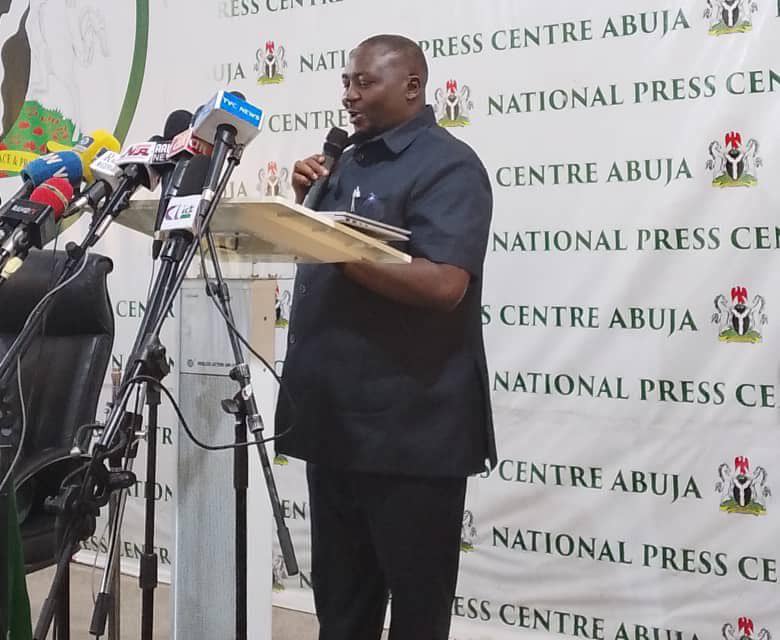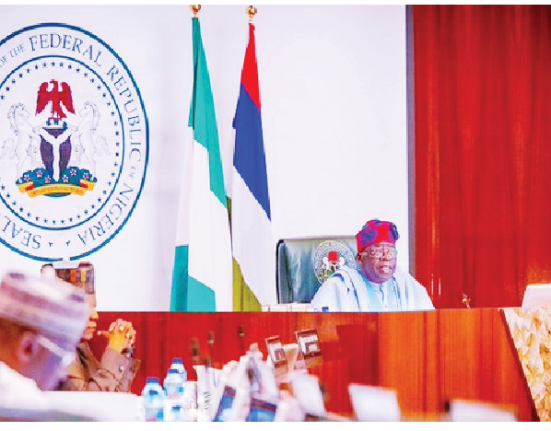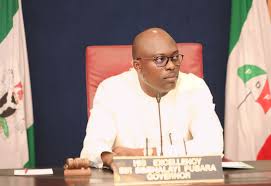In a detailed presentation that has sent waves through Nigeria’s energy landscape, the Honourable Minister of Power yesterday showcased remarkable strides achieved within the first quarter of 2025, highlighting unprecedented progress in the nation’s power sector under the Renewed Hope Agenda.Speaking before an assembly of government officials and stakeholders, the Minister revealed that Nigeria achieved a historic milestone of 6,003 MW generation available capacity on March 2, 2025 the highest ever recorded in the country.
This breakthrough was quickly followed by a peak generation evacuation of 5,801.44 megawatts just two days later.”The average daily power generated and distributed in the past quarter stood at 5,700 MW compared with the 4,100 MW achieved in the third quarter of 2023, indicating a growth of nearly 40% since our assumption of office,” the Minister stated, underscoring the significance of adding 1,600 MW to the national grid in less than two years a feat that previously took the country almost four decades to accomplish.
The presentation further revealed that market reforms have yielded an additional ₦700 billion in revenue, representing a staggering 70% increase attributed to the cost-reflective tariff adjustment for Band A customers. This financial improvement has reduced the government’s subsidiary tariff shortfall by 35%, bringing it down from ₦3 trillion to ₦1.9 trillion.
Another milestone highlighted was the successful unbundling of the Transmission Company of Nigeria into the Transmission Service Provider (TSP) and the National Independent System Operator (NISO), an initiative previously attempted without success. The NISO Board was inaugurated by the Vice President on April 8, marking a significant step toward enhanced grid operations and reliability.In a move toward decentralized electricity management, regulatory oversight has been transferred to Plateau and Niger States, bringing the total number of states with sub national control over electricity markets to eleven, in line with the provisions of the Electricity Act.
The Minister also spotlighted significant progress in transmission infrastructure, noting that the Transmission Company of Nigeria commissioned 61 new transformers totalling 5,589MVA in 2024, followed by 9 additional transformers adding 1,637.5MVA in Q1 2025 across key locations nationwide.On renewable energy initiatives, the presentation detailed substantial investments in off-grid and mini-grid solutions across multiple states.
The Minister specifically mentioned new projects in Plateau, Cross River, Niger, and Osun States that are now supplying thousands of households with clean energy.The Presidential Metering Initiative, backed by a ₦700 billion FAAC allocation, aims to deploy 1.1 million meters by the end of 2025, with plans for 2 million annually over the next five years.
Additionally, the World Bank-funded Distribution Sector Recovery Program will provide over 3.2 million meters, with the first batch of 75,000 already arriving in April.Despite these achievements, the Minister acknowledged significant challenges facing the sector, including outstanding debts to power generation companies totalling ₦4 trillion as of December 2024, with ₦1.94 trillion representing unpaid subsidies for 2024 alone.”While we recognise the concerns of electricity consumers, we must collectively acknowledge that maintaining the current tariff structure is unsustainable for both the government and the sector’s long-term viability,” the Minister cautioned, signaling potential adjustments ahead.
The presentation concluded with a commitment to continuing the transformation of Nigeria’s power sector through a people-centred, reform-driven, and results-based approach, emphasizing that these achievements represent not just statistics but new jobs, improved livelihoods, and better prospects for the economy and citizens.
As the country watches these developments with keen interest, many industry analysts believe the current trajectory could finally address Nigeria’s persistent power challenges, though the sustainability of these gains remains contingent on addressing the identified structural and financial hurdles.







